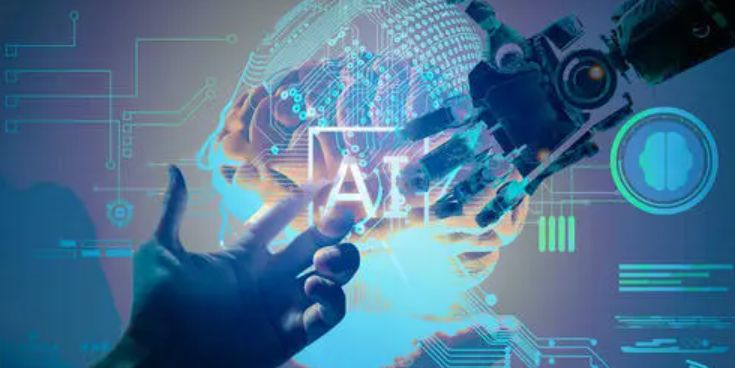Risks brought by artificial intelligence assistants
Nov 08, 2023 By Si Gyeongmin
Dominant digital intermediaries may exercise monopoly power or threaten consumer protection. This hazard can be solved through more micro-level governance of artificial intelligence assistants. But a series of more general risks (many of which require a more macro perspective) may stem from how artificial intelligence assistants change the market and business structure.
1. Super conversion as a new form of destruction
Artificial intelligence assistants may suddenly suggest that a large number of consumers switch to new businesses for three main reasons. The first is lower prices. Competitors may always try to make prices drop. The first reaction of many sellers is to give up profits and seize the market. However, the seller's response may not be timely. At this time, the artificial intelligence assistant will persuade the customer to leave. The second factor is more attractive products. Innovation can occur in small increments and subtle changes, such as creating a battery that lasts longer. Finally, artificial intelligence assistants may have their own selfish hearts. For example, for the same products of two companies, the artificial intelligence assistant will give priority to recommending companies that have paid more for advertising.

2. Management response
Uncertainty in the market has led companies to hoard cash and reduce debt to hedge against future shocks, further reducing investment and recruitment. Increasing cash or other current assets may be an effective means to prevent super conversion, because it will enable the company to pay daily expenses for a long time in the case of revenue decline, thereby gaining time for the development of new revenue-generating or cost-cutting strategies.
Another possible business response is the diversification of the company. Diversification may be particularly effective in preventing excessive speculation. If a company that sells tissues has many different products, such as food and mattresses, it is unlikely that the company will fail in the face of a super conversion of tissue customers.
In addition, it may be easier for companies to acquire competitors in the artificial intelligence market. Once it is discovered that a company is prone to lose revenue due to super conversion, the seller’s market value will drop, making it a cheaper target. Therefore, artificial intelligence assistants may accelerate industry consolidation, which may undermine competition given the difficulty of identification by antitrust regulators.

3. Market volatility
A key task of financial supervision is to transfer "unknown risks" to "known risks." Observers used to ignore the possibility of financial crises caused by known market changes. History shows that regulators ignore the danger of how microeconomic development can trigger a macroeconomic crisis. The failure of financial regulators to foresee the dynamics of microeconomic consumer behavior, which could lead to dramatic changes in financial markets, such as the panic withdrawal of funds from solvent banks and unproblematic mortgages.
Although there is great uncertainty as to how it will develop in the future, the concept of super conversion deserves attention in unstable conversations because it is located at the intersection of real-world market developments, extensive academic warnings, and lessons from historical crises.
4. Restrictions on the super conversion
Sellers have many tools to prevent super conversion or mitigate its impact. Some of these tools have potential competitive advantages, such as product customization, which can bring better products to consumers while increasing user viscosity. In addition, as the capacity increases, the seller may digitally provide the artificial intelligence assistant with the number of new customers that can be accommodated in a specific time period, such as 10 million new customers every quarter, which will effectively limit the super conversion.
The concentration of artificial intelligence assistants, the degree of consumer reliance on artificial intelligence assistants to make decisions, the ability of artificial intelligence assistants to move from one seller to another, the substitutability of the seller’s products, the difference in the cost structure of enterprises, and the feasibility of rapidly increasing manufacturing or services are all important factors affecting the super conversion.
-
 Savings Sep 23, 2024
Savings Sep 23, 2024How to Cut Costs: Saving on Your Phone Plan Amid Rising Prices
Discover how to save money on your phone bill by exploring prepaid and postpaid plans, family options, and effective negotiation strategies with your provider.
-
 FinTech Sep 22, 2024
FinTech Sep 22, 2024Fed Report: Generative AI and Emerging Cyber Threats
The Fed cautions that generative AI poses new security and cyber risks, which is why cyber threat intelligence services must take precautions.
-
 FinTech Nov 08, 2023
FinTech Nov 08, 2023Risks brought by artificial intelligence assistants
Consumers switch to new businesses for three main reasons, which include lower prices, more attractive products, and selfishness of artificial intelligence assistance.
-
 Business Sep 02, 2024
Business Sep 02, 202410 Lucrative Side Hustle Ideas You Can Start in 2024
Explore diverse side hustle ideas that boost your income, from tutoring to photography, while allowing you to pursue your passions and develop new skills.
